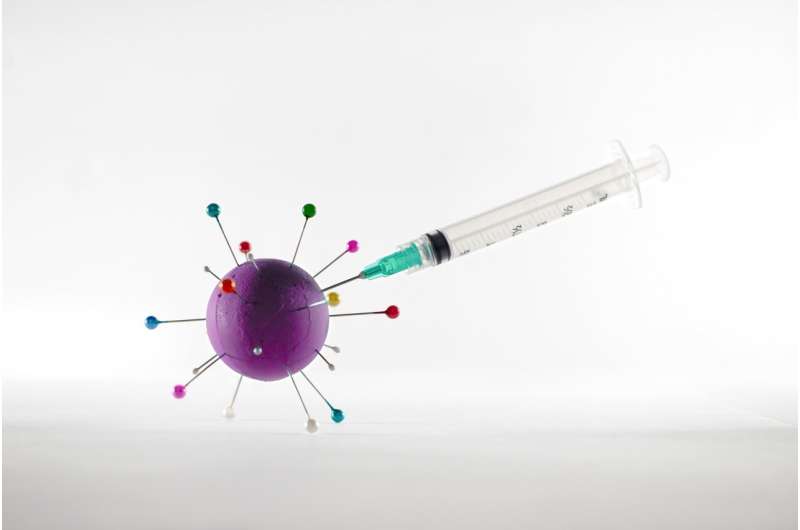This article has been reviewed according to Science X's editorial process and policies. Editors have highlighted the following attributes while ensuring the content's credibility:
fact-checked
peer-reviewed publication
trusted source
proofread
NIH spent $950M for basic or applied research leading to patents providing market exclusivity for drugs approved 2010–19

A new study from Bentley University's Center for Integration of Science and Industry demonstrates that the National Institutes of Health (NIH) spent $950 million on basic or applied research associated with patents that provided manufacturers with market exclusivity. This amount represents <1% (0.59%) of the $164 billion in total NIH funding for research contributing to the approval of these products.
The article in PLOS ONE titled, "NIH funding for patents that contribute to market exclusivity of drugs approved 2010–2019 and the public interest protections of Bayh-Dole," is the first to look broadly at the NIH funding for the basic and applied research related to new drug approvals and the proportion of this research that leads to patents that give manufacturers market exclusivity.
These patents are particularly important in that they provide manufacturers with monopoly production and pricing authority and are also subject to the public interest provisions of the Bayh-Dole Act intended to promote practical application of this research, availability at "reasonable terms," a return on public sector investments, and broader economic growth.
This study focused on 313 drugs approved by the FDA from 2010-2019 with an entry in the DrugPatentWatch database that tracks patents cited as barriers to generic competition as well as those cited in litigation.
The study shows that the NIH provided $164 billion in project (grant) funding for basic or applied research related to these drugs prior to first approval. Of this amount, only 0.59% ($0.95/$164 billion) of the NIH funding identified, including 0.38% ($0.52/$135) of NIH funding for basic research on the drug target and 1.5% ($0.44/$28.6) of NIH funding for applied research on the drugs themselves, was associated with patents in DrugPatentWatch.
Significantly, while the study identified NIH-funded research related to each of the 313 drugs or their targets, only 34 (10.9%) had patents associated with NIH funding and only 29 (9.3%) had patents arising from research related to the drug or its target.
"We know that NIH funding supports approximately half of the cost of research and development leading to new drugs," said Fred Ledley, Director of the Center for Integration of Science and Industry, and the senior author of this study. "This new research shows that very little of the taxpayer contribution to new drug approvals is subject to laws designed to protect the public interest and ensure an equitable balance between the interests of the public and those of commercial manufacturers."
This work is one of a series of studies from the Center for Integration of Science and Industry characterizing the NIH's contribution to new drug approvals and the role of government as a lead investor in pharmaceutical innovation. These studies demonstrate that the scale of NIH investment in new drug approvals is comparable to investment by industry, with >80% of NIH funding involving basic science and .
This pattern contributes to the limited number of patents associated with NIH-funded research, since
Dr. Ledley was the lead author of this study with Dr. Ekaterina Galkina-Cleary.
More information: NIH funding for patents that contribute to market exclusivity of drugs approved 2010–2019 and the public interest protections of Bayh-Dole, PLoS ONE (2023). DOI: 10.1371/journal.pone.0288447





















